

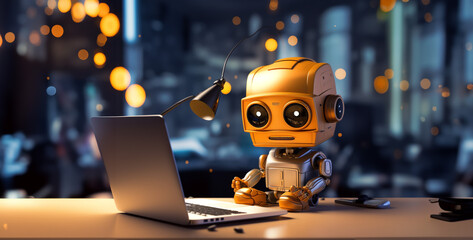
AI in Robotics: Transforming the Future of Automation
Artificial Intelligence (AI) is giving robotics a serious upgrade, turning machines into brainy, adaptable wonders. Imagine robots that don’t just follow instructions but actually learn and make decisions on their own—sounds like sci-fi, right? Well, it’s happening now! This blog dives into how AI is revolutionizing robots, making them smarter, more precise, and even a bit cheeky. From helping in surgery to cruising around on their own, AI is turning robots into our new best friends. So buckle up as we explore the futuristic world where robots and AI team up to tackle everything from everyday tasks to the wild unknown!

Introduction
AI in robotics is like peanut butter meeting jelly—two great things that are even better together! Thanks to AI, robots aren't just stuck doing the same old routines. Instead, they’re learning, adapting, and making their own decisions. This article explores the game-changing world of AI-powered robots, diving into their incredible applications, potential, and the tech that makes it all possible. Get ready to be amazed by how AI is turning robots into smart, autonomous helpers, ready to tackle anything that comes their way!
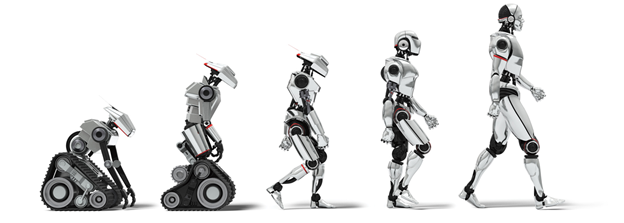
The Evolution of Robotics
Robotics has evolved from basic mechanical devices to high-tech marvels capable of tackling complex tasks. Initially, robots were like assembly line workers, great at repetitive tasks but not much else. Enter AI, and suddenly, robots got a major upgrade. Now, they're not just following orders but learning and adapting to new environments. Thanks to AI, robots are becoming smarter and more versatile than ever before, ready to take on a variety of challenges with ease.
How AI Enhances Robotics
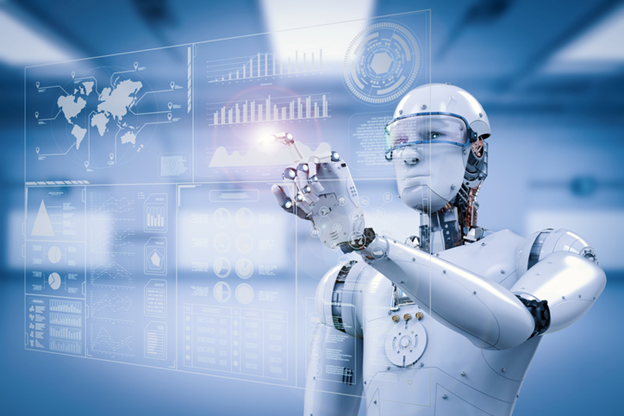
Machine Learning and Robotics
Machine learning, a branch of AI, is a game-changer for robotics. With smart algorithms, robots can sift through huge amounts of data, learn from their experiences, and get better over time. In other words, machine learning gives robots the ability to adapt to new situations and tackle tasks that were once out of their reach. It’s like giving robots a brain that gets sharper with every challenge they face!
For example, machine learning algorithms give robots some pretty nifty skills for handling complex tasks in dynamic environments, like:
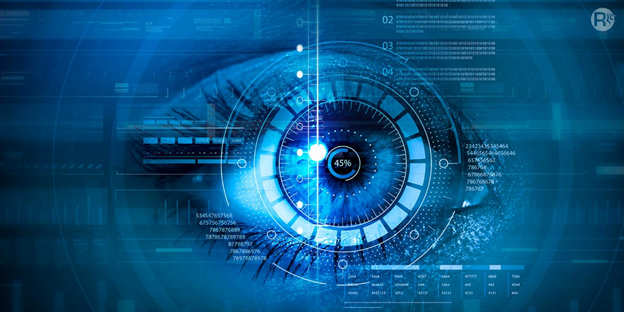
Computer Vision
Imagine robots with eyes that aren't just fancy flashlights! Computer vision is like giving robots real sight, letting them see the world and all its wonky wonderfulness. This lets them recognize objects, avoid bumping into furniture (adios, bruised shins!), and even navigate without getting lost. It's like a seeing eye dog for robots, but with way less tail-wagging (at least for now). This is especially important for self-driving cars, which use computer vision to see the road and all the other drivers out there (hopefully not texting and driving!).
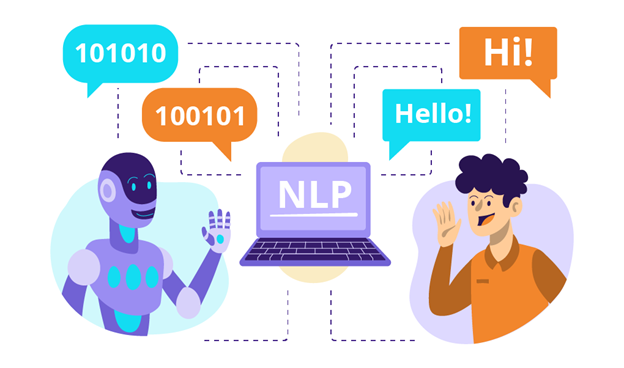
Natural Language Processing
No more saying "huh?" to your robot! Natural Language Processing (NLP) is like teaching robots to speak our language, not just ones and zeroes. Imagine robots that can understand your questions and requests, like a super helpful (and hopefully less sassy) personal assistant. This makes customer service robots a reality, so you can finally chat with a machine that actually gets what you're saying. No more wrestling with menus or deciphering cryptic error messages!
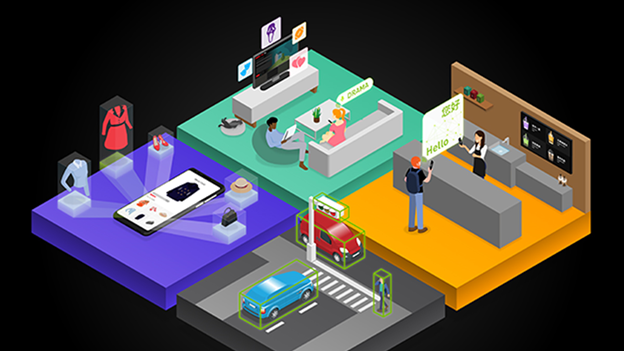
Reinforcement Learning
Imagine teaching a robot by giving it high fives for good work and timeouts for messing up! Reinforcement learning is just like that. Instead of us writing out every single step, the robot learns by doing and getting rewards for good choices. This is perfect for things that are hard to teach in advance, like how to walk without falling flat on its face (although there might still be some hilarious stumbles in the learning process).
Think of it like letting the robot loose in a giant virtual playground, courtesy of NVIDIA's Omniverse. In this playground, the robot, or "agent" as the fancy folks call it, can experiment safely. It can try different things, bump into walls (virtually of course!), and learn from its mistakes. Just like in the real world, the agent gets rewarded for making good choices and figuring things out.
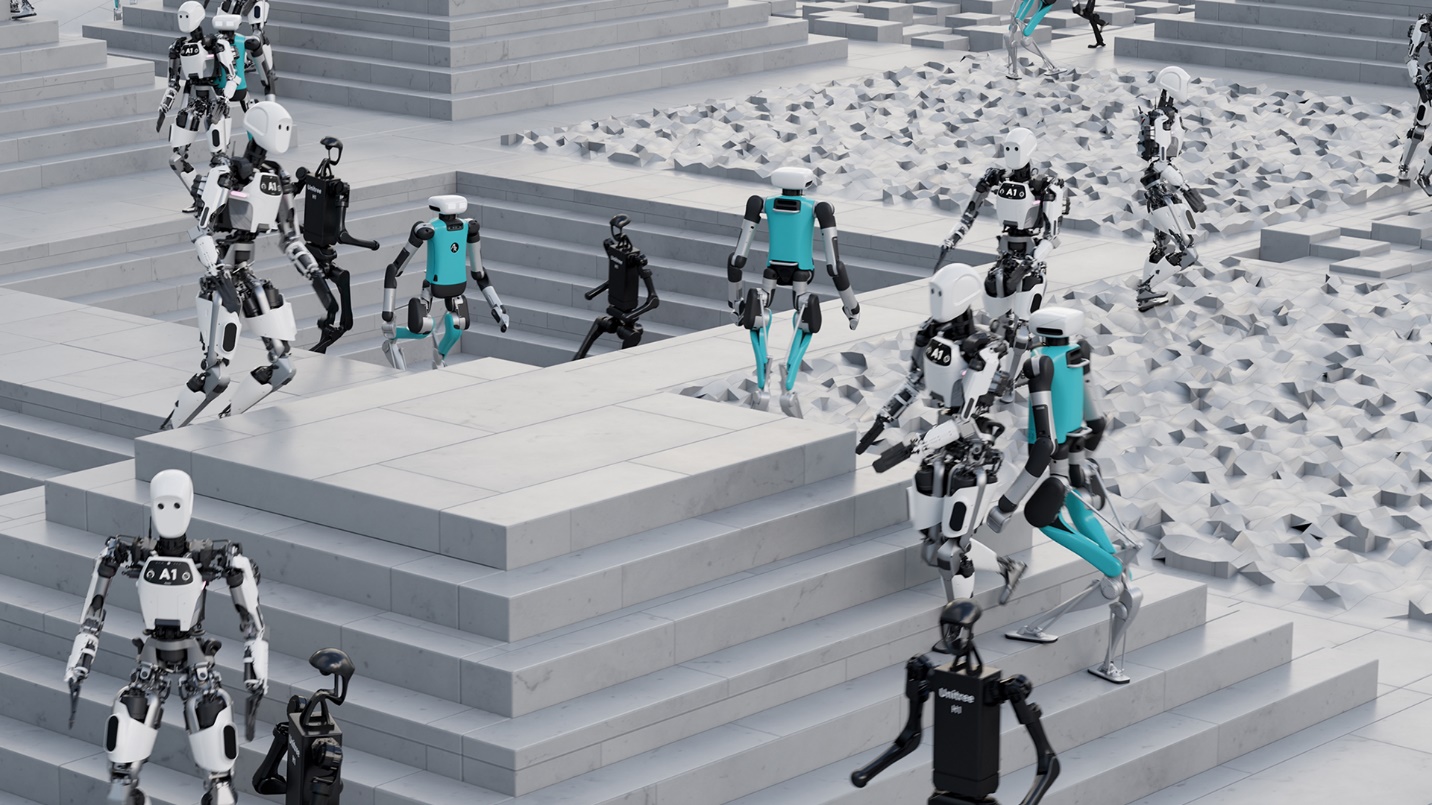
In Omniverse, NVIDIA's created a whole simulated world where these robot agents can learn all sorts of things. It's like robot bootcamp, but way more high-tech and with a lot less yelling (unless the agent keeps tripping over the same virtual banana peel, that might get a little frustrating). The cool thing is, these agents can learn some pretty complex tasks through trial and error, just like giving themselves virtual high fives for a job well done.
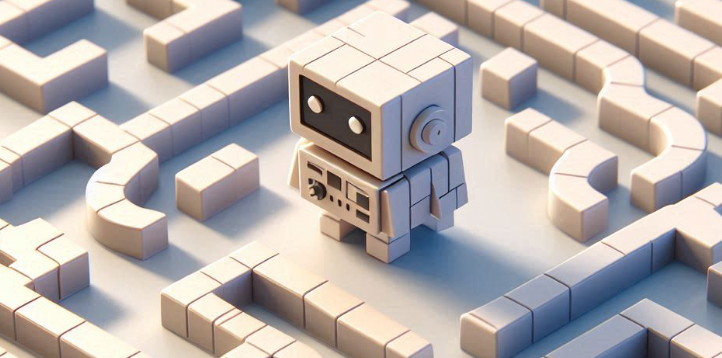
AI Planning and Decision Making
Ever feel overwhelmed by a giant to-do list? Robots do too! AI planning is like giving them a super-powered organizer. It helps them break down big tasks into smaller, bite-sized chunks, just like we do with our grocery lists. This way, they can figure out the best order to tackle things and make choices on the fly if something unexpected happens. Imagine a warehouse robot trying to pick and pack all your favorite snacks. AI planning helps it map the most efficient route, grabbing the chips before the cookies (or maybe that's just you?). It's all about getting the job done quickly and accurately, without any robotic scrambling or spilled boxes of goodies.
Applications of AI in Robotics
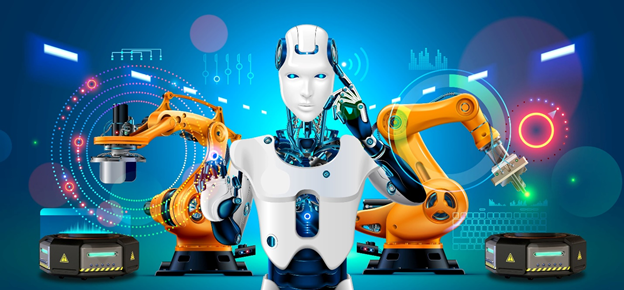
Industrial Automation
Imagine factories getting a super-powered upgrade! That's what AI-powered robots are bringing to industrial automation. These aren't the clunky, one-trick pony robots of the past. We're talking about machines that can tackle complex assembly lines, inspect products with eagle eyes (no feathers required), and even manage logistics like a pro. The result? A massive boost in productivity, with fewer mistakes and consistent quality across the board. Think of car factories where robots can switch between different tasks on the fly, building all sorts of vehicles, from zippy sports cars to spacious SUVs. It's all about efficiency and making sure every car rolls off the line in tip-top shape. So, the next time you see that shiny new gadget, remember, there might have been a super-smart robot behind its creation!
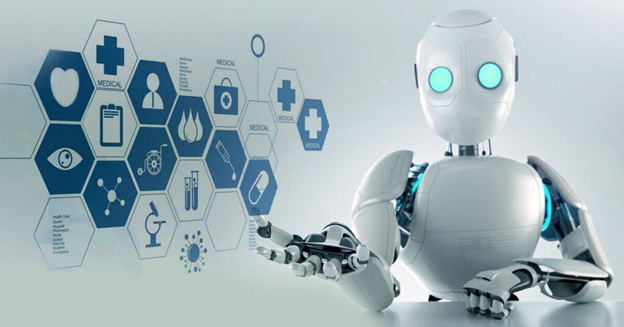
Healthcare
Imagine a future where robots are your teammates in healthcare! AI in robotics is transforming medicine by lending a super-steady hand in surgery, helping patients with care, and even managing medical records. Surgical robots are like having an extension of a surgeon's skill, allowing for high-precision procedures with minimal shakiness (no coffee jitters here!). This means potentially faster recovery times and even better outcomes for patients. But robots aren't just there for surgery. They can also be patient care assistants, helping with daily tasks and even personalizing therapy programs for rehabilitation. Think of a robot helping you with physical therapy exercises or reminding you to take your medication on time. It's all about making healthcare more efficient and giving patients the support they need to get back on their feet.
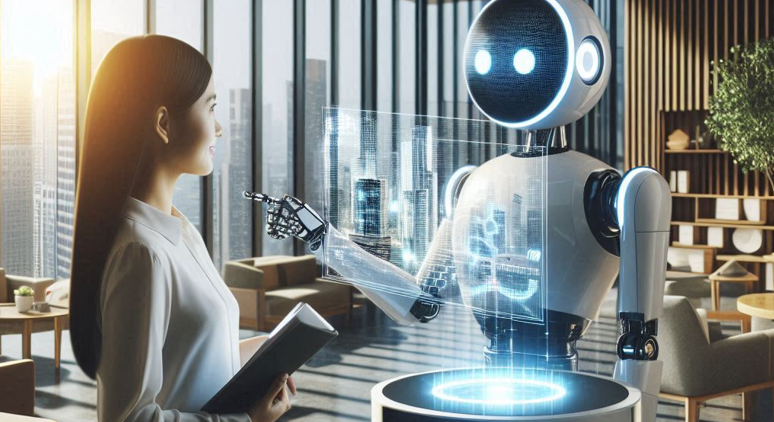
Service Robots
Imagine robots going from the dusty plains of Westworld to the service industry! AI-powered service robots are popping up everywhere, from hotels to stores, and they're bringing a whole new level of customer service. Unlike the hosts in Westworld (hopefully!), these aren't sentient beings with hidden agendas. We're talking robots that can greet you with a smile (or at least a friendly chirp), answer your questions about the latest gadgets or the best local pizza place (because who doesn't love pizza?), and even handle transactions so you can skip the checkout line. Think of hotels with robot concierges who can manage your check-in, recommend things to do, and maybe even give you a robot high five (without any creepy hidden motives, of course). It's all about making your experience smooth and efficient, so you can focus on the fun stuff, like relaxing on vacation or finding the perfect pair of shoes. So next time you see a service robot, don't be scared! They're just there to lend a metallic helping hand, unlike some of the malfunctioning hosts we see in Westworld.
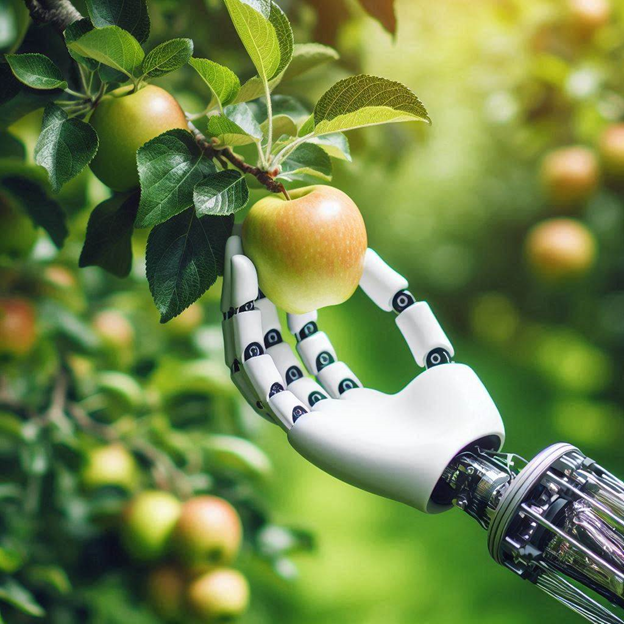
Agriculture
Get ready for a revolution on the farm! AI-powered robots are no longer science fiction; they're transforming agriculture. Unlike the tractors of yesteryear, these are tireless machines capable of planting seeds, harvesting crops, and even monitoring their health – all while braving any weather condition. This translates to a significant boost in efficiency, allowing farmers to maximize their yield. But that's not all. AI in robotics brings precision and sustainability to the table.
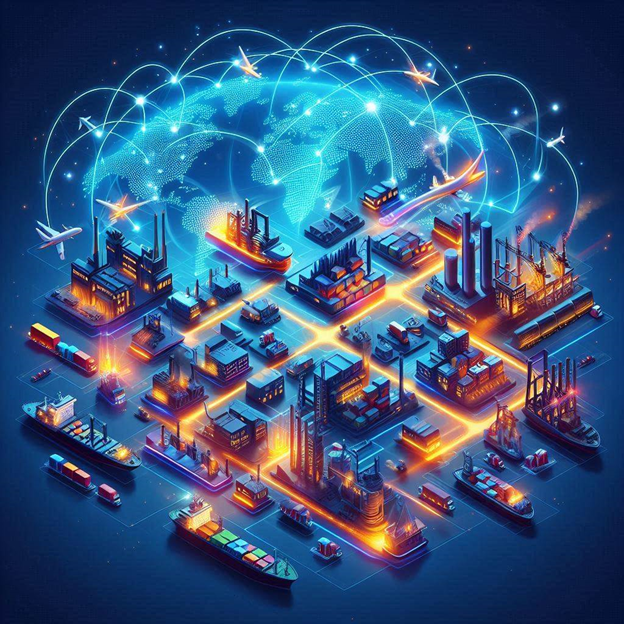
Logistics and Supply Chain Management
Forget zippy delivery drones from "Blade Runner" – the future of logistics is already here! AI-powered robots are revolutionizing supply chains, taking us way beyond the clunky conveyor belts of a "Star Wars" cargo hold. These autonomous machines are the ultimate warehouse wranglers, managing inventory with laser focus (sorry, Han Solo!), sorting packages with lightning speed, and ensuring your orders arrive on your doorstep faster than a hyperspace jump.
AI algorithms are the brains behind this logistical brawn. They optimize routes and schedules with the precision of a droid navigator, slashing costs and streamlining the entire delivery process. Imagine a scene straight out of "Alien" – a vast warehouse humming with activity, but instead of Ripley facing xenomorphs, it's a team of collaborative robots working together to fulfill your online shopping spree. These tireless machines are the key to a smoother, more efficient supply chain, ensuring that the creature comforts of Earth (or any other planet you call home) arrive when you need them most.
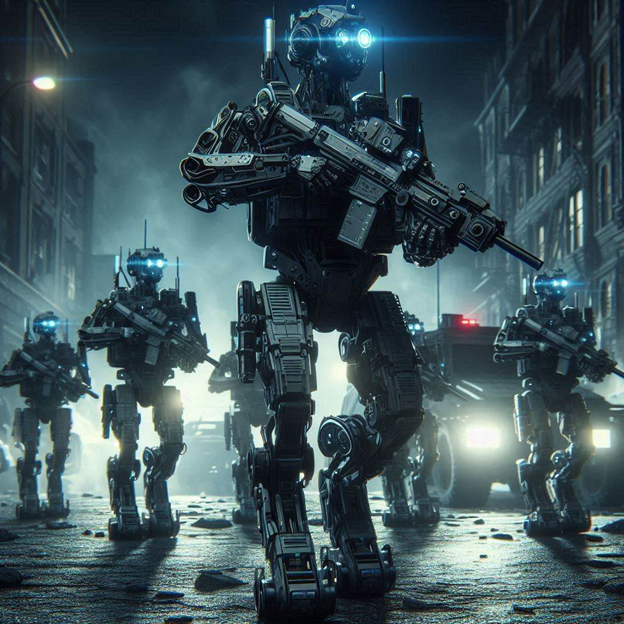
Defense and Security
Ditch the laser guns and rocket-punching robots of action movies – real-world defense and security are getting a high-tech upgrade with AI-enhanced robots. These aren't the clunky droids of a "Star Wars" battle station; they're whiz-bang machines designed to tackle dangerous tasks like bomb disposal and reconnaissance.
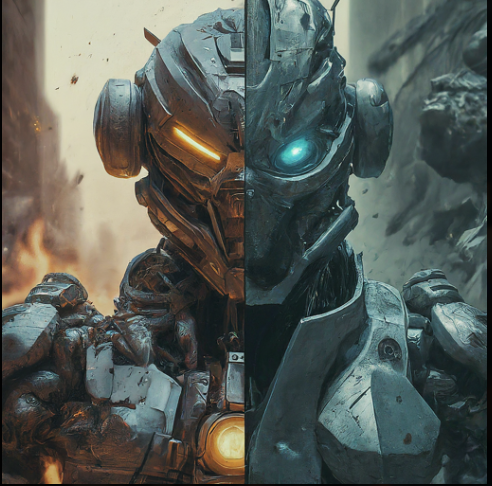
The key advantage? AI gives these robots superhuman perception, allowing them to analyze data in real-time and make critical decisions on the fly. Imagine a scene ripped from a Tom Clancy novel: a tense bomb disposal situation. But instead of a lone hero in a sweat-stained vest, an AI-powered robot carefully approaches the device, its sensors feeding back a constant stream of data. The robot analyzes the threat, makes a split-second call, and safely neutralizes the bomb – all without putting human lives at risk.
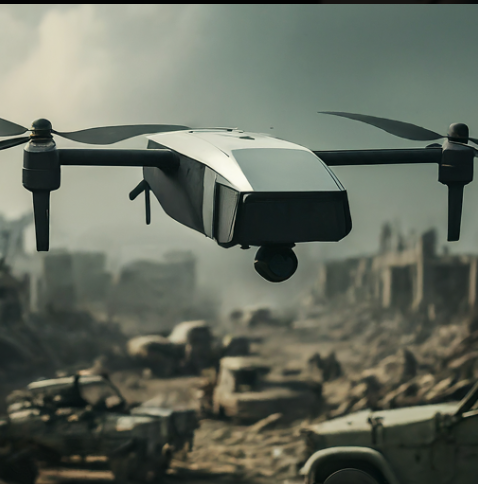
These robots are also invaluable for surveillance missions. Picture a high-powered drone soaring through the air, not like the clunky recon vehicles of a war film, but a sleek, AI-powered machine. Its advanced cameras and sensors gather intel, feeding information back to commanders, providing a crucial tactical advantage without the need for soldiers to brave dangerous territory. So, while Hollywood robots may trade in firepower, real-world AI defense is all about using intelligence and automation to keep people safe.
Challenges and Ethical Considerations
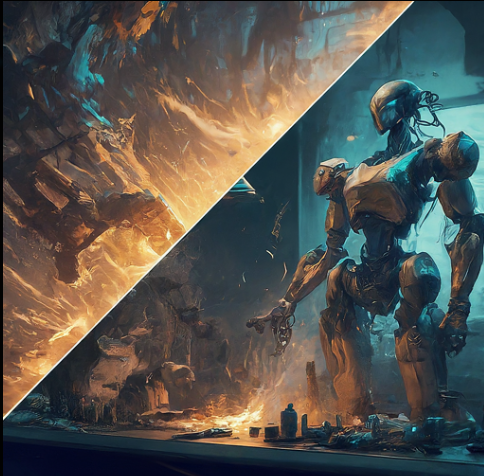
Technical Challenges
Admittedly, AI in robotics isn't all sunshine and positronic brains (like our friends in Asimov's positronic robot stories). There are technical hurdles to overcome before these robots become commonplace. Training AI algorithms to handle the messy, unpredictable world we live in is a challenge. It's not like the perfectly simulated environments you see in robot training movies. Making sure these AI systems are safe and reliable is another big concern. We don't want a Terminator situation on our hands! Plus, integrating AI with current robotic systems and infrastructure is a big job, requiring a lot of effort and resources. It's not like just plugging a new upgrade chip into your toaster.
But hey, even R2-D2 had his glitches! The important thing is that the potential benefits of AI in robotics are enormous. By tackling these technical challenges, we can create a future where robots work alongside us, making our lives and our world a whole lot better.
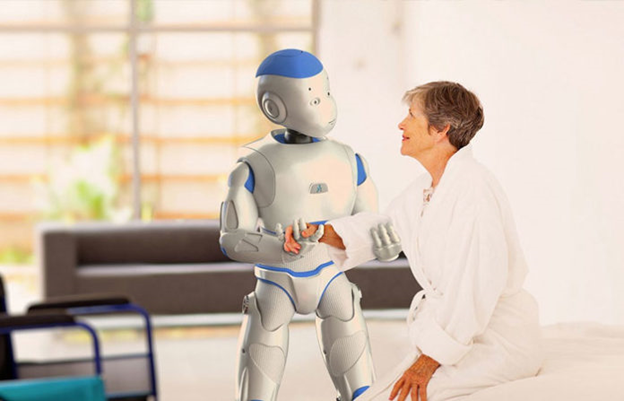
Ethical and Social Implications
AI and robotics are like that brilliant robot in your favorite sci-fi film – powerful and full of potential, but also raising some ethical eyebrow-wiggles. Sure, robots taking over repetitive tasks sounds like a dream come true (hello, three-hour commutes!), but it also means job displacement for some people. We don't want a society where everyone's chilling out in robot-massaged recliners while a select few control the AI overlords.
There's also the privacy issue. Imagine every move you make being tracked by a robotic Roomba on steroids! AI systems collecting data need to be held to the highest ethical standards. And don't even get us started on the potential misuse of robots. We've all seen movies where things go sideways with super-intelligent machines (think Skynet from Terminator).
The key here is to be proactive. As we integrate AI into robotics, we need to develop policies and frameworks to address these concerns responsibly. Reskilling the workforce to adapt to new job opportunities created by AI is crucial. And when it comes to privacy and ethical use, we need clear guidelines to ensure these super-smart robots work for us, not the other way around. Basically, let's strive for a future that's more Asimov and less Terminator.
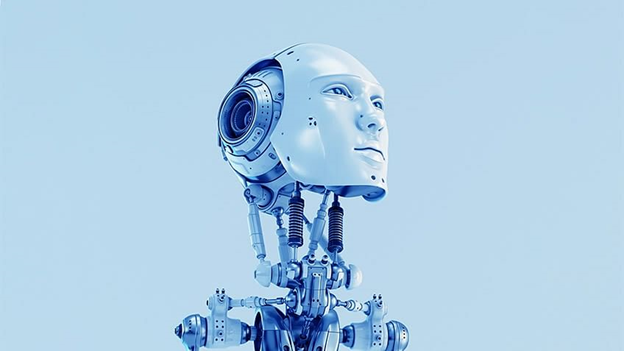
Future Trends in AI and Robotics
Collaborative Robots (Cobots)
Imagine ditching the lone-wolf robot stereotype and entering a world of teamwork! Collaborative robots, or cobots for short, are busting onto the scene. These aren't the robots locked away in sterile labs; they're designed to be our partners in crime (the good kind!), working right alongside humans.
Cobots are equipped with super-smart AI that allows them to understand and even anticipate our actions. Think of them as the ultimate teammates, able to adapt to our work style and seamlessly integrate into the flow. This power duo of human and robot is a recipe for serious productivity boosts, especially in fields like assembly lines and healthcare.
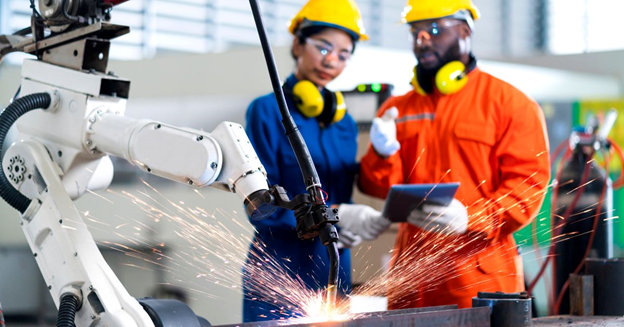 In factories, cobots can handle the repetitive tasks, freeing us humans to focus on more complex problem-solving. Picture a car assembly line where a cobot handles the heavy lifting and precise welding, while the technician swoops in for the final touches. In hospitals, cobots can assist surgeons with delicate procedures or help with patient care, providing an extra set of hands and a tireless work ethic.
In factories, cobots can handle the repetitive tasks, freeing us humans to focus on more complex problem-solving. Picture a car assembly line where a cobot handles the heavy lifting and precise welding, while the technician swoops in for the final touches. In hospitals, cobots can assist surgeons with delicate procedures or help with patient care, providing an extra set of hands and a tireless work ethic.
The future of work isn't about robots replacing us; it's about robots working with us, making our jobs easier, safer, and way more productive. So, the next time you see a robot, don't be scared! It might just be your new cobot coworker, ready to lend a metallic helping hand.
Autonomous Vehicles
Buckle up for a transportation revolution! Autonomous vehicles, powered by AI, are about to take us way beyond the clunky flying cars of "The Jetsons". Imagine cruising down the highway in a self-driving car – no more battling rush hour traffic or white-knuckling it on a blind curve. These AI-powered machines are like super-aware chauffeurs, using their advanced sensors to navigate roads, detect obstacles with laser-like precision, and make split-second decisions to ensure a smooth and safe ride.
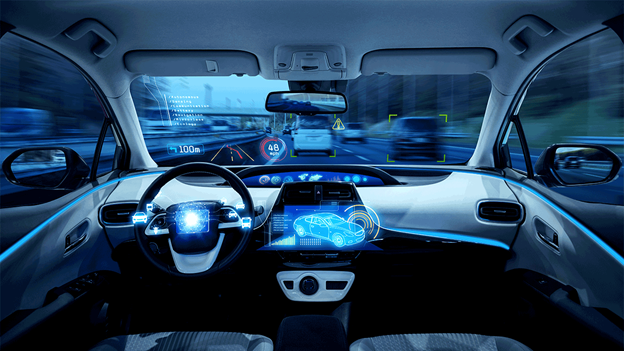
The benefits are endless. AI-powered cars have the potential to slash the number of accidents on the roads, caused by human error (distracted driving, anyone?). They could also significantly lower transportation costs, making travel more accessible for everyone. And let's not forget the incredible impact on people with disabilities. Autonomous vehicles could provide a newfound freedom and mobility for those who might otherwise struggle with traditional transportation.
Of course, self-driving cars are still under development, but the future is looking bright. With AI at the wheel, we can expect a transportation landscape that's safer, more efficient, and opens up a world of possibilities for everyone.
AI in Space Exploration
Forget the lonely astronaut stereotype! AI-powered robots are becoming the ultimate space explorers, venturing where no human has dared to go before. These aren't the clunky bots of sci-fi movies; they're brainy machines capable of collecting rock samples on Mars, fixing busted equipment on a space station, and even building habitats for future colonists on the Moon.

The key ingredient? Artificial intelligence. Space is a rough neighborhood – extreme temperatures, radiation blasts, and the ever-present risk of micrometeoroid collisions. But AI gives these robots the smarts they need to survive and thrive. Imagine NASA's rovers on Mars, not just bouncing around in a remote-controlled ballet, but using AI to navigate treacherous terrain, identify interesting rock samples, and even conduct basic scientific experiments – all on their own!
This doesn't mean robots are replacing human astronauts entirely. Think of them as tireless teammates, taking care of the dangerous and repetitive tasks, freeing up human space explorers for more complex missions. So, the next time you gaze up at the stars, remember, there might be a team of AI-powered robots out there, paving the way for future human voyages to distant worlds.
AI-Driven Personal Assistants
Imagine ditching the overflowing to-do list and entering the age of the super-powered personal assistant! AI-driven robots are no longer the stuff of science fiction. These are real-life helpers designed to streamline your day and boost your productivity.
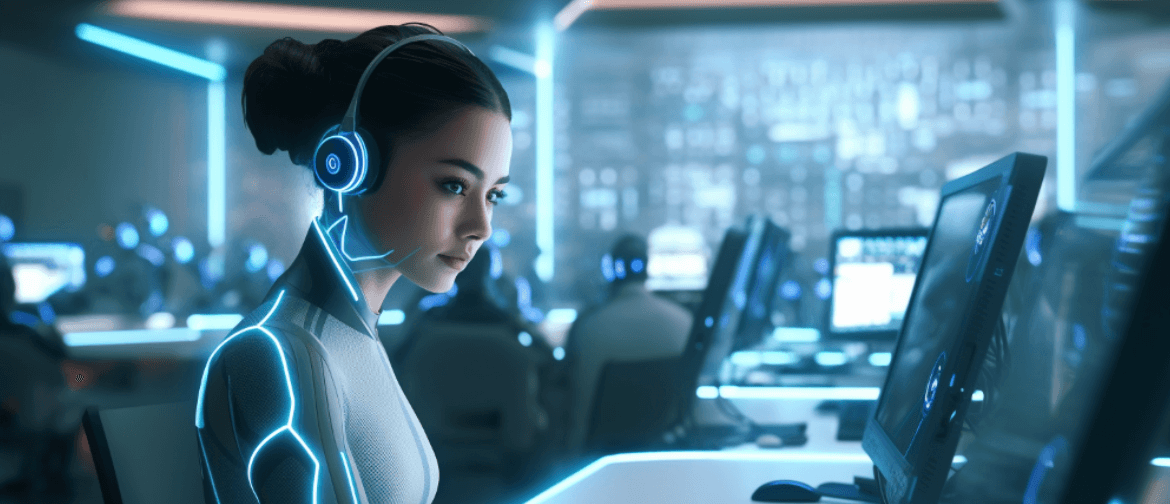
Forget the days of sticky notes and reminders scribbled on napkins. These AI assistants can manage your entire schedule, from setting alarms and reminding you about dentist appointments to booking that fancy dinner reservation you've been eyeing. They can even learn your preferences and make decisions on your behalf – like automatically refilling your favorite coffee subscription before you run out (because a world without caffeine is a world nobody wants to live in).
Think of them as your personal genie, but without the three wishes limit! By handling all the mundane tasks, they free up your time and mental energy to focus on what truly matters. Imagine a world where you can ditch the stress of remembering birthdays, delegate grocery shopping to your AI assistant, and finally get around to tackling that creative project you've been putting off.
So, the next time you feel overwhelmed by your to-do list, don't despair! The future of personal assistants is here, and it's powered by AI. Get ready to take back your time and live a more productive, stress-free life.
Smart Homes and IoT Integration
Imagine your home transforming into a high-tech haven with the help of AI-powered robots! These aren't the clunky contraptions from robot movies, but helpful companions that seamlessly integrate with your smart home and Internet of Things (IoT) devices. We're talking robots that can tackle chores like cleaning floors with the grace of a ballerina and the power of a superhero (minus the cape).
But cleaning is just the beginning! These robots can double as security guards, keeping an eye on things when you're away. Imagine a world where you can check in on your furry friend through the robot's camera app, or get an alert if an unexpected visitor approaches. Plus, they can be your personal home automation hub, seamlessly adjusting lights, temperature, and even playing your favorite music based on your preferences. It's like having a live-in butler, but way cooler (and probably less likely to judge your messy sock drawer).
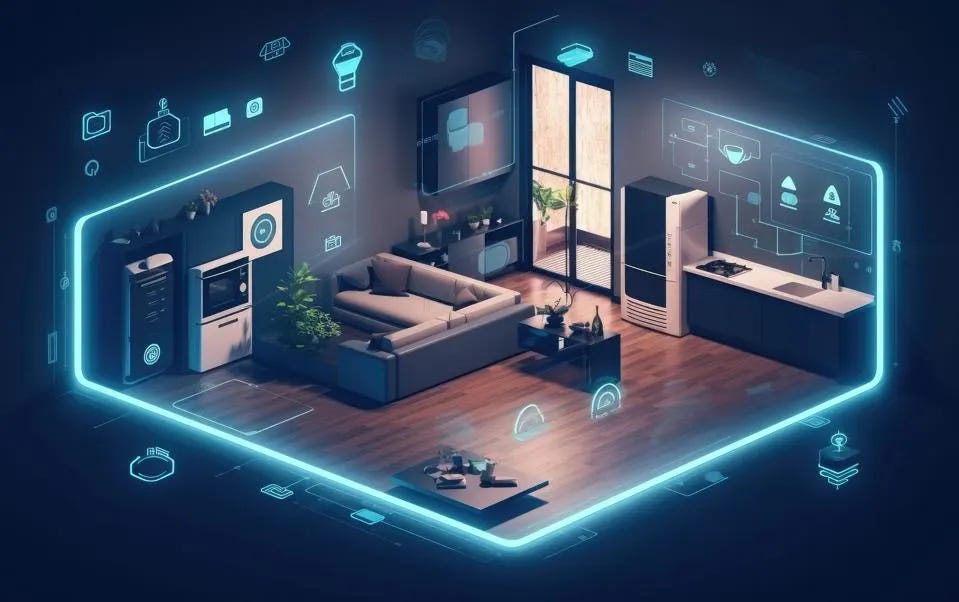 The real magic lies in AI. These robots are constantly learning your habits and routines. So, if you like to come home to a spotless kitchen after a long day, your robot can anticipate that and have the floors sparkling before you even walk in the door. It's all about personalized service that takes convenience to a whole new level. So, ditch the chore list and embrace the future of smart homes! These AI-powered robots are here to make your life easier, more comfortable, and, let's be honest, way cooler.
The real magic lies in AI. These robots are constantly learning your habits and routines. So, if you like to come home to a spotless kitchen after a long day, your robot can anticipate that and have the floors sparkling before you even walk in the door. It's all about personalized service that takes convenience to a whole new level. So, ditch the chore list and embrace the future of smart homes! These AI-powered robots are here to make your life easier, more comfortable, and, let's be honest, way cooler.
Conclusion
AI in robotics is revolutionizing our world, weaving itself into the fabric of our lives from the factory floor to the hospital room, and even into our homes. This marriage of machine and intelligence is ushering in an era of unprecedented efficiency and precision, with robots tackling tasks once thought unimaginable. Yet, as we march forward with this exciting technology, we must remember the challenges and ethical considerations that come with it. By addressing these concerns responsibly, we can ensure a future where AI-powered robots become our partners, not replacements, working alongside us to solve complex problems, improve our quality of life, and create a future that's both beneficial and sustainable.
Description
AI in robotics is not science fiction anymore. It's a reality shaping our world today. As we move forward, embracing the potential of AI while addressing the challenges will be crucial. The future holds immense promise for collaboration and innovation, where intelligent robots work alongside us to create a better tomorrow.
Powered by Froala Editor